World
IPAs moved out of Clare hotel, 14 months after blockade
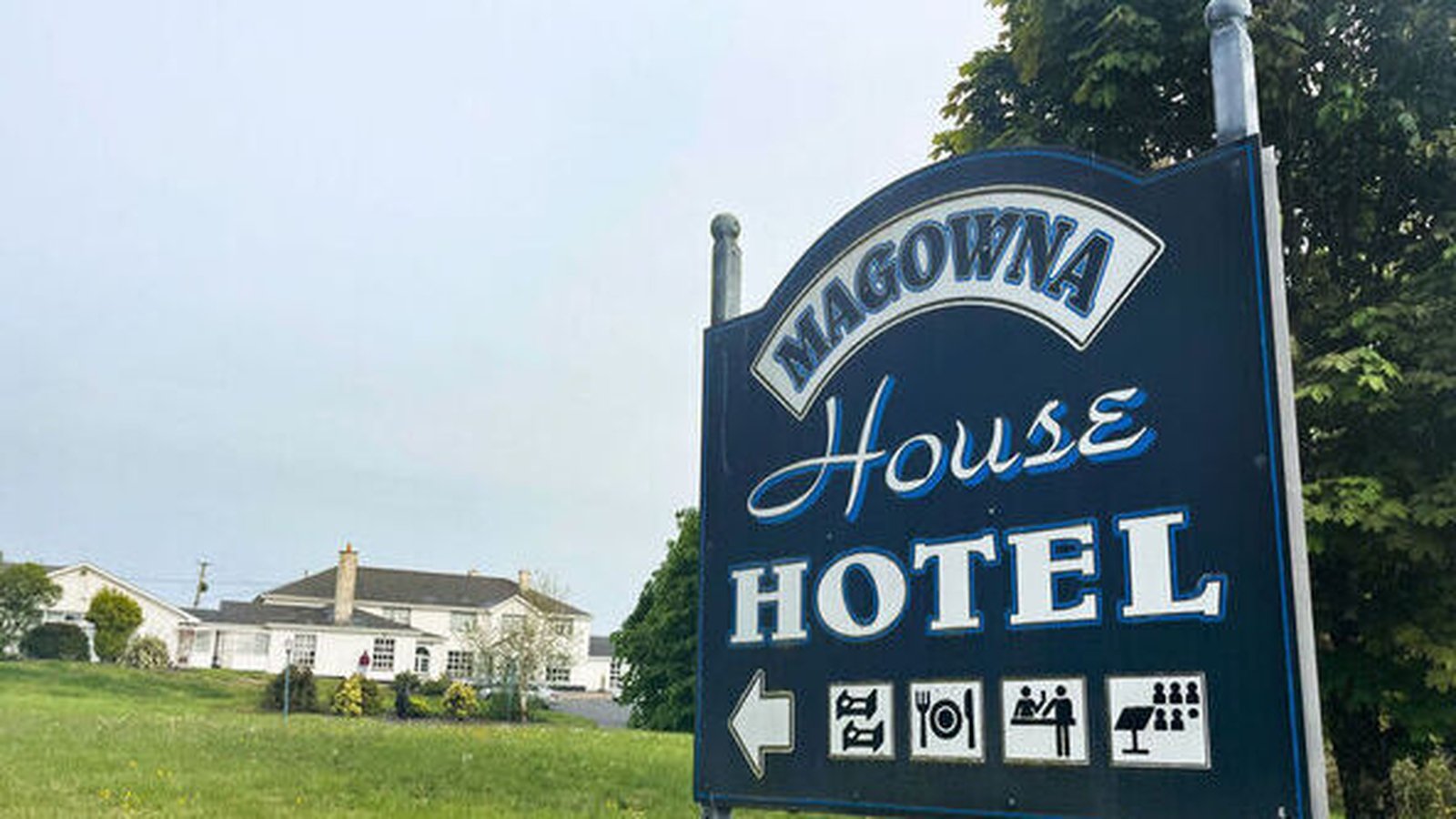
A group of International Protection Applicants (IPAs) have been moved out of a Co Clare hotel with just two days’ notice, more than a year after members of the local community blocked roads in the area to protest their arrival.
Magowna House in Inch became one of the most controversial locations for new direct provision centres in May 2023 due to a heated stand-off and road blockades that prompted Government intervention ahead of many similar demonstrations that followed around the country.
In letters from the Department of Integration, seen by RTÉ’s Drivetime, up to 26 male asylum seekers were this week given two days’ notice of a plan to move them to two accommodation sites in Dublin.
They were instructed to gather “all of their belongings” with “transport arranged to collect them”.
The men were among 34 male IPAs who were originally bussed to the disused Magowna House in Inch, around 8km outside Ennis, in May 2023.
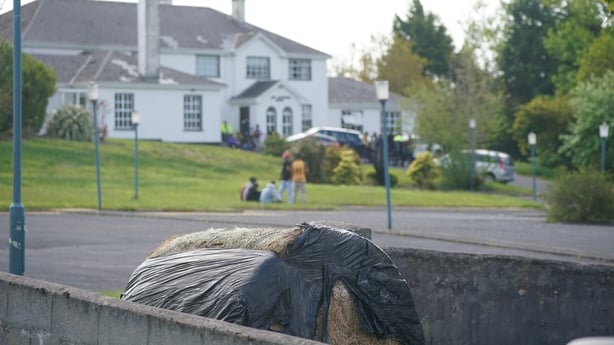
The property originally had a planned capacity for 69 residents under a contract between the department and Cork-based CRM Properties Ltd, which leases the facility.
However, no more men arrived after a group of locals, who called themselves the ‘concerned residents of Inch’, blocked access roads to the hotel with tractors, silage bales and bollards.
They manned around-the-clock checkpoints to monitor those coming and going on the L 1438 route.
The group insisted their actions were justified based on their view that the isolated rural townland of Magowna was “unsuitable for a direct provision centre”.
The week-long blockades were eventually stood down, however, what would follow was described as a “peaceful community protest” after a visit to the site by Minister of State for Integration Joe O’Brien.
This resulted in a pause on further arrivals pending a process of mediation between the community and the men living in Magowna House.
No engagement ever took place between those groups however and the protests continued on a part-time basis.
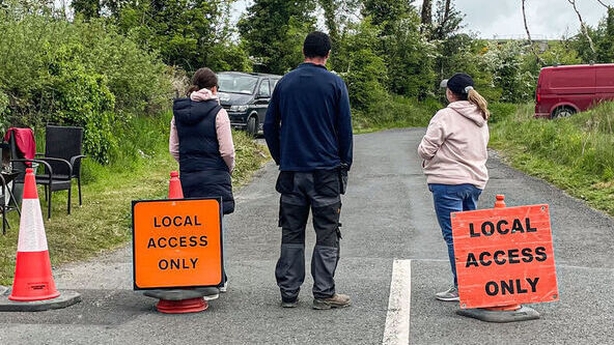
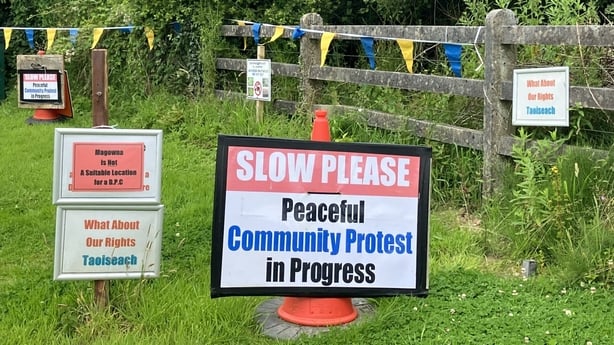
Some men left the centre, while others found jobs in businesses in Ennis, Lahinch and other local towns.
As the men left Magowna House this week, some voiced concerns, not only about losing those jobs but also the friends and connections they have made in the past 14 months.
Some of the men spoke to RTÉ’s Drivetime as they left for Dublin on two buses, some using different first names to protect their identities pending their asylum application process.
23-year-old Nacer, from Morocco who found work in an Ennis supermarket, said he felt he would “find another job anywhere”.
However, he said he may struggle to make “new friends” in Dublin as he enjoyed the quiet life in Co Clare. He said that “people were so friendly”, although he never got to know those living along the road directly outside Magowna House.
Majid from Palestine and Ibrahim from Syria told Drivetime of their “shock and confusion” at receiving such short notice to move to Dublin.
“Two days is crazy,” another man from Afghanistan said.
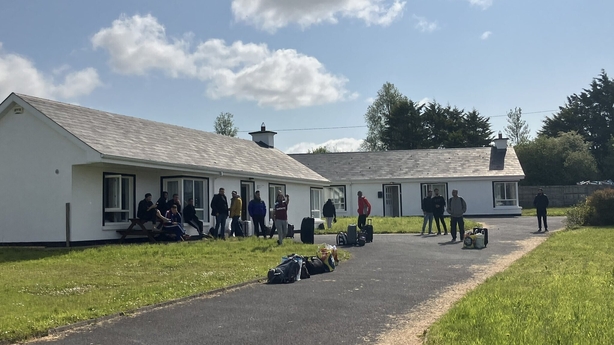
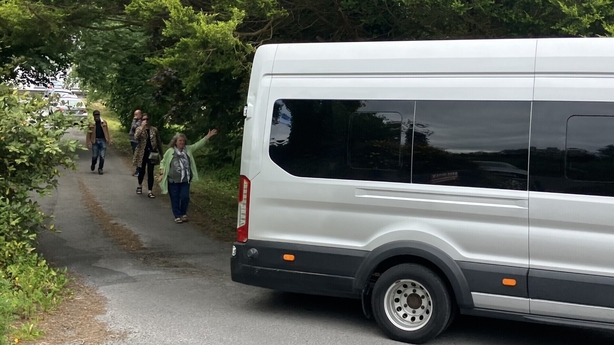
Management working at the centre for CRM Property Ltd said they “can’t comment” on what is happening or whether the centre will close.
In response to a parliamentary question by Clare Fianna Fáil TD Cathal Crowe in March, Minister for Integration Roderic O’Gorman said that his department “had no option but to consider all offers of accommodation” in order to “address the accommodation shortfall”.
This was due to the State accommodating “over 102,000 people from Ukraine as well as International Protection Applicants” at that time.
In the case of Magowna House, an initial 12-month contract was signed and the department intended “to seek its renewal”.
Read more: ‘Total breakdown of trust’ – tiny townland focus of disquiet over asylum seeker housing
However, when asked by Drivetime this week if that contract was renewed and whether they were plans to house other IPAs or refugees there, a department spokesperson said issues were raised following an inspection of the property by department officials.
In a written response, the department spokesperson continued: “As a precaution, the department has made an arrangement to remove the residents from this accommodation, and as is appropriate, the department will make alternative arrangements for those who are in need of and entitled to avail of State accommodation.
“Residents are not obliged to avail of any offer made to them if they are in a position to manage their accommodation needs themselves.”
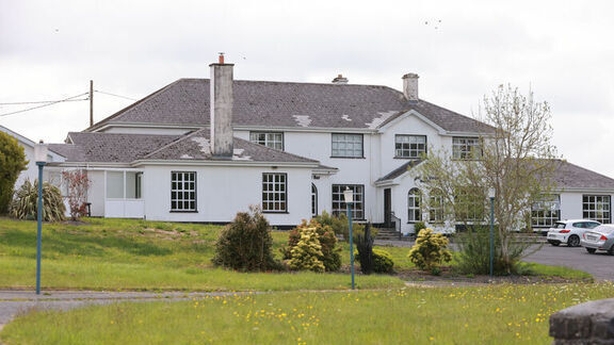
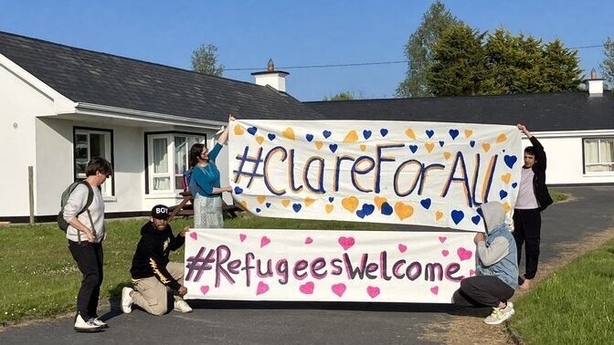
Regarding the unspecified issues raised by department officials in their inspection of Magowna House, the statement said: “As a consequence, the department is considering the clauses provided for in the agreement in place for the use of this property for the accommodation of International Protection applicants.”
Whether this means an end to the use of Magowna House as a direct provision centre and an end to the local protest remains to be seen.
While none of local opposition committee in Inch wished to comment to Drivetime, their protest signs remain in place, while nobody was there as the buses carrying the last of the IPAs left Magowna House.
A small group of locals who had supported the men in the Inch and Ennis areas were there to bid them farewell and to offer hugs and gifts including the Clare flags.
Some of the men leaving, originally from African and Middle-Eastern countries, shouted “Up the Banner” and joked about the All Ireland rivalry with the Cork hurling team.
One of those waving the men goodbye was Ennis woman Orla Ní Eili, recently retired from the Clare Immigrant Support Centre and formerly of the Irish Refugee Council.
Expressing concern about the sudden relocation of the men, as well as other recent moves of Ukrainian refugees in Clare and elsewhere, Ms Ni Eili said such moves can be “destabilising” for people who already live in very “precarious situations”.
They are now forced to start again, she said, “upending their morale”.
She urged the Government and everybody “to keep calm” during this migrant accommodation crisis, but also to work harder to find more local and longer-term solutions to help people maintain “some semblance of holding a life together”.










